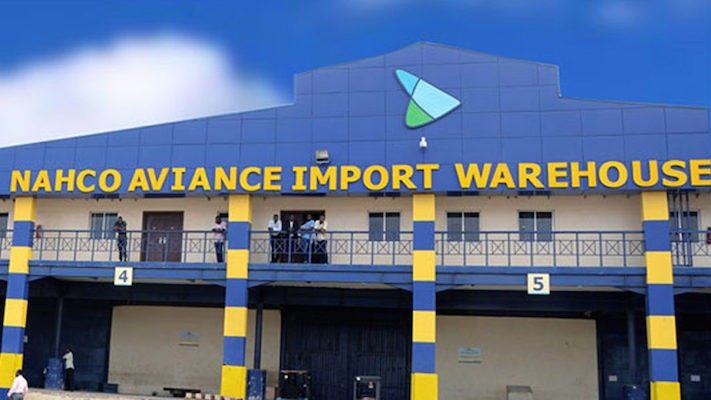The Nigerian Aviation Handling Company (NAHCO) has announced a remarkable financial performance in the first half of 2025, recording a net profit of ₦8.88 billion, up significantly from its performance in the same period last year. This impressive result reflects robust demand for ground-handling services across airports and underscores the firm’s improving operational efficiency in Nigeria’s aviation sector.
At a management briefing in Lagos, NAHCO’s Chief Executive Officer highlighted the company’s strategic response to growing passenger and cargo volumes, stating that improved revenue from airport operations, cargo logistics, and training services contributed to the strong bottom‑line result. Despite persistent headwinds such as rising fuel costs, currency volatility, and infrastructural limitations, the company was able to protect margins and sustain growth.

Central to the company’s profitability was expanded ground-handling activities at key international airports, including Lagos, Abuja, and Port Harcourt. NAHCO reported an increase in aircraft turnaround services, passenger boarding assistance, baggage handling, and ramp operations. The increase in international flight frequencies and cargo throughput contributed to elevated fee income, especially from offloading, loading and aircraft support functions.
Cargo handling emerged as a major revenue contributor. As trade volumes rose—even amid global dislocation—NAHCO capitalized on surge demand in import routes and perishable goods transport, offering cold-chain services and expedited cargo clearances. These services helped push non‑aeronautical revenue streams upward, reinforcing NAHCO’s balanced income profile.
In addition, NAHCO’s aviation training academy recorded increased enrolment, with customer training contracts linked to ground safety, first aid, and ramp operations. The academy’s revenue stream added value to the profit outcome, further cushioning against operational disruptions and positioning the company as a knowledge centre in airport logistics.
Management also credited disciplined cost control for underpinning profitability. Expenses linked to utilities, payroll, and vehicle maintenance were streamlined via energy efficiency projects, staff rationalisation, and digital scheduling systems. These efficiency gains helped offset inflationary pressures on operational inputs.
Financial controllers pointed to tighter working capital decisions. By optimising receivables and deploying staggered payment plans with airline clients, NAHCO improved liquidity and managed forex exposure more effectively. The company also reduced foreign-denominated liabilities, where possible, to mitigate naira depreciation risks. All of these moves served to preserve operating profit.
However, the company continues to face challenges. Chronic power supply disruptions and port access logjams at airports remain sources of service delays and additional cost. Management reiterated plans to invest in backup power systems, terminal infrastructure and logistics integration to maintain service reliability.
Looking ahead, NAHCO stated its intention to explore vertical expansion opportunities in airport ecosystem services—including bonded warehousing, equipment leasing, and support services for new terminals. Discussions are also underway to extend logistics support to regional airports, capitalising on Nigeria’s pivot toward decentralised aviation infrastructure.
Industry analysts have praised NAHCO’s performance, noting that securing nearly ₦9 billion in half-year profit shows operational momentum—even as peers in related sectors grapple with interest rate pressure, forex constraints, and rising operational costs. The forecast for the full year reflects moderate optimism, with the firm targeting double-digit growth in profitability if market conditions remain stable.
From a governance standpoint, NAHCO reaffirmed its commitment to shareholder transparency, promising quarterly disclosures, audited financials, and periodic stakeholder engagements. The company also announced it will consider proposing an interim dividend to reward existing shareholders.
Market watchers highlighted the broader significance: rising profitability in aviation services is a positive signal for Nigeria’s broader tourism, trade, and transport sector. Efficient airport operations encourage airlines to expand routes; they lower logistics costs for exporters; and they support national goals for seamless passenger movement under regional integration regimes like ECOWAS and AfCFTA.
In summary, NAHCO’s ₦8.88 billion profit in the first half of 2025 is a clear indicator of resilience and strategic execution. By capitalizing on rising demand, controlling costs, and exploring growth pathways, the company is positioning itself as a central player in Nigeria’s evolving aviation infrastructure—and paving the way for sustainable expansion in logistics and airport services.
Support InfoStride News' Credible Journalism: Only credible journalism can guarantee a fair, accountable and transparent society, including democracy and government. It involves a lot of efforts and money. We need your support. Click here to Donate
